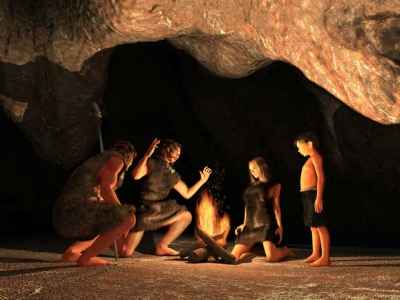
Researchers can only guess when humans first began forming sounds into words to communicate thoughts (there certainly weren’t any books to record the invention of language). Ancestors of the human species possessed the mouth and throat parts necessary to pronounce words nearly two million years ago, but they likely didn’t have much to talk about until they started creating complex tools and building fires more than a million years later. The first system of words might have described tools and fire-making techniques. “Carl blow on fire, fire grow big,” Carl the Homo erectus our immediate evolutionary ancestor – may have explained to his campfire pals 500,000 years ago.
No doubt the earliest members of our species – Homo sapiens – added to the conversation when they appeared around 200,000 years ago. But as they started leaving Africa to explore Asia, Europe, and eventually the rest of the world around 60,000 years ago, our human ancestors began to develop more complicated tools – and probably words to describe them – within their own tribes. Their vocabularies grew and split off from the languages spoken by more far-flung groups. The farther these pockets of humanity moved from southwestern Africa – the point of origin for both Homo sapiens and language – the more their languages changed. And that’s why we have nearly 7,000 languages spoken around the world today.
Picture Credit : Google

